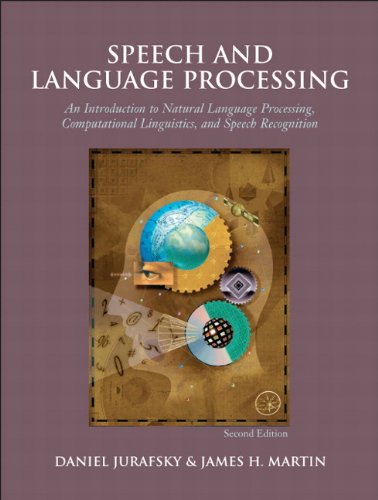
Speech and Language Processing
by Dan Jurafsky, James H. Martin
Publisher: Stanford University 2017
Number of pages: 499
Description:
This text takes an empirical approach to the subject, based on applying statistical and other machine-learning algorithms to large corporations. The authors cover areas that traditionally are taught in different courses, to describe a unified vision of speech and language processing. Emphasis is on practical applications and scientific evaluation.
Download or read it online for free here:
Download link
(15MB, PDF)
Similar books
 Language, Proof and Logic
Language, Proof and Logicby Jon Barwise, John Etchemendy - Center for the Study of Language
The book covers the boolean connectives, formal proof techniques, quantifiers, basic set theory, induction, proofs of soundness and completeness for propositional and predicate logic, and an accessible sketch of Godel's first incompleteness theorem.
(20446 views)
 A Maximum Entropy Approach to Natural Language Processing
A Maximum Entropy Approach to Natural Language Processingby A. L. Berger, S. A. Della Pietra, V. J. Della Pietra - Association for Computational Linguistics
The authors describe a method for statistical modeling based on maximum entropy. They present a maximum-likelihood approach for automatically constructing maximum entropy models and describe how to implement this approach efficiently.
(10198 views)
 Natural Language Processing for the Working Programmer
Natural Language Processing for the Working Programmerby Daniël de Kok, Harm Brouwer
We will go into many of the techniques that so-called computational linguists use to analyze the structure of human language, and transform it into a form that computers work with. We chose Haskell as the main programming language for this book.
(16381 views)
 How Mobile Robots Can Self-organise a Vocabulary
How Mobile Robots Can Self-organise a Vocabularyby Paul Vogt - Language Science Press
This book presents a series of experiments in which two robots try to solve the symbol grounding problem. The experiments are based on the language game paradigm, and involve real mobile robots that are able to develop a grounded lexicon ...
(6131 views)